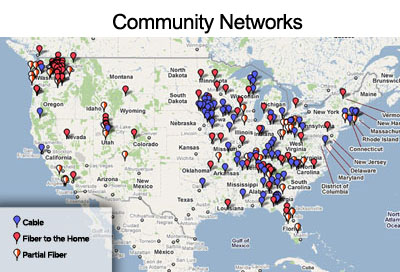Comcast: Internet Access is Temporarily a Civil Right
You can now read this post at Huffington Post also.
As a condition of its massive merger with NBC, the federal government is requiring Comcast to make affordable Internet connections available to 2.5 million low-income households for the next two years.
In promoting the program, Comcast's Executive VP David Cohen, has made some unexpected admissions:
 Comcast has a de facto monopoly in many communities.
Comcast has a de facto monopoly in many communities.
“Access to the internet is akin to a civil rights issue for the 21st century,” said David Cohen, Comcast’s executive vice president. “It’s that access that enables people in poorer areas to equalize access to a quality education, quality health care and vocational opportunities.”It was only after the federal government mandated a low-cost option for disadvantaged households that Comcast realized everyone could benefit from access to the Internet. Sadly for Comcast, it has done a poor job of reaching those disadvantaged communities, by its own admission:
"Quite frankly, people in lower-income communities, mostly people of color, have such limited access to broadband than people in wealthier communities."This is why so many communities are building their own next-generation networks - they know that these networks are essential for economic development and ensuring everyone has "access to a quality education, quality health care and vocational opportunities." And they know that neither Comcast nor the federal government are going to make the necessary investments. They need a solution for the next 20 years, not just the next 2.
 Comcast has a de facto monopoly in many communities.
Comcast has a de facto monopoly in many communities.

